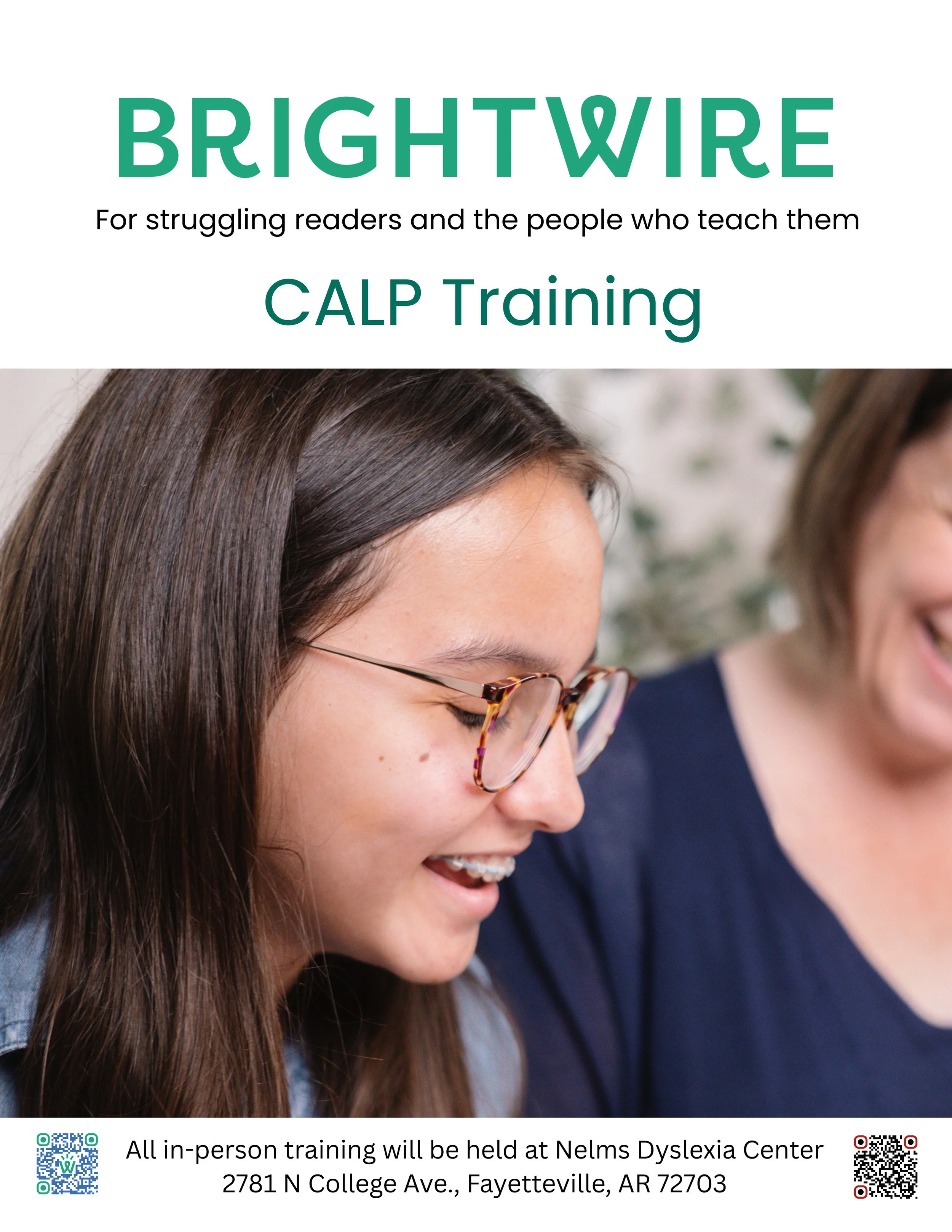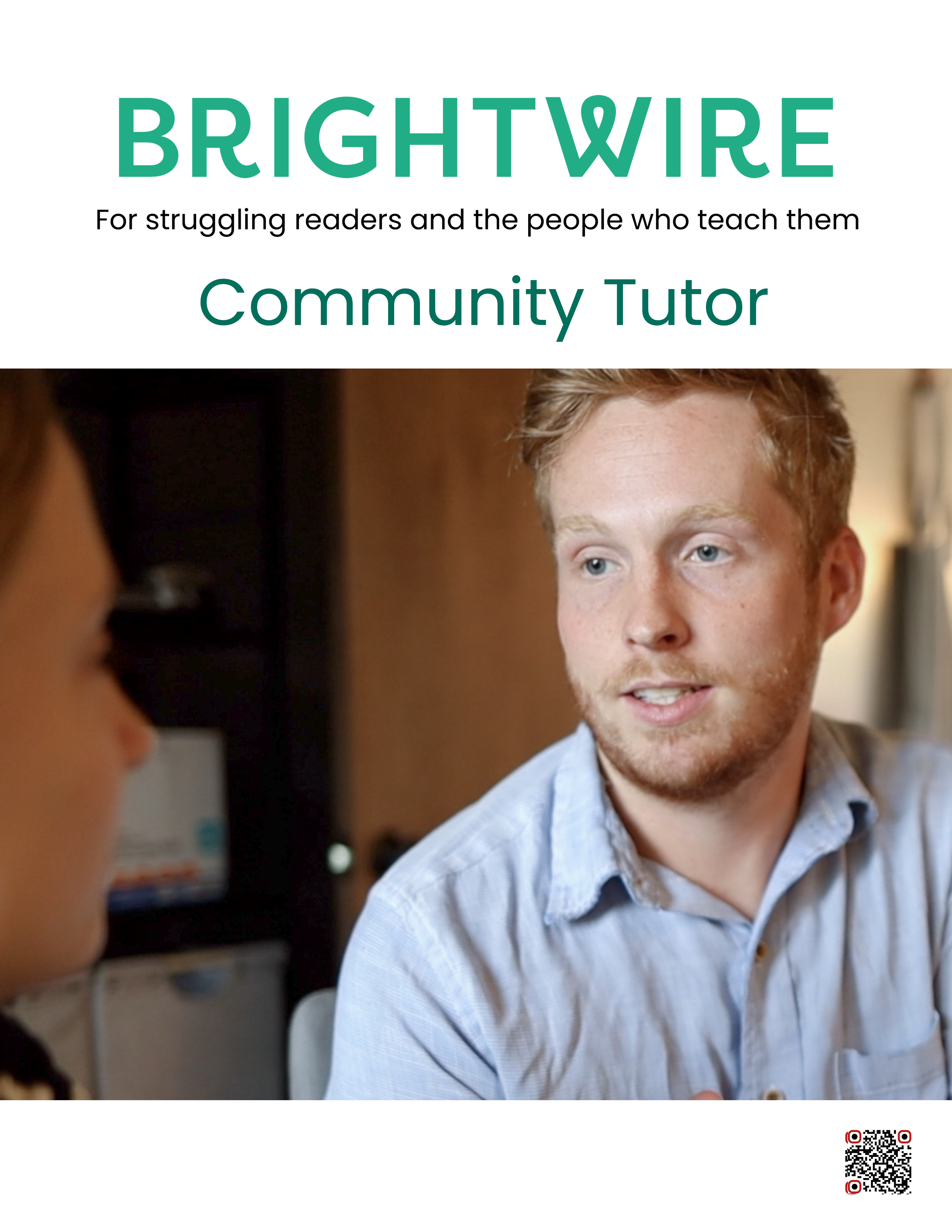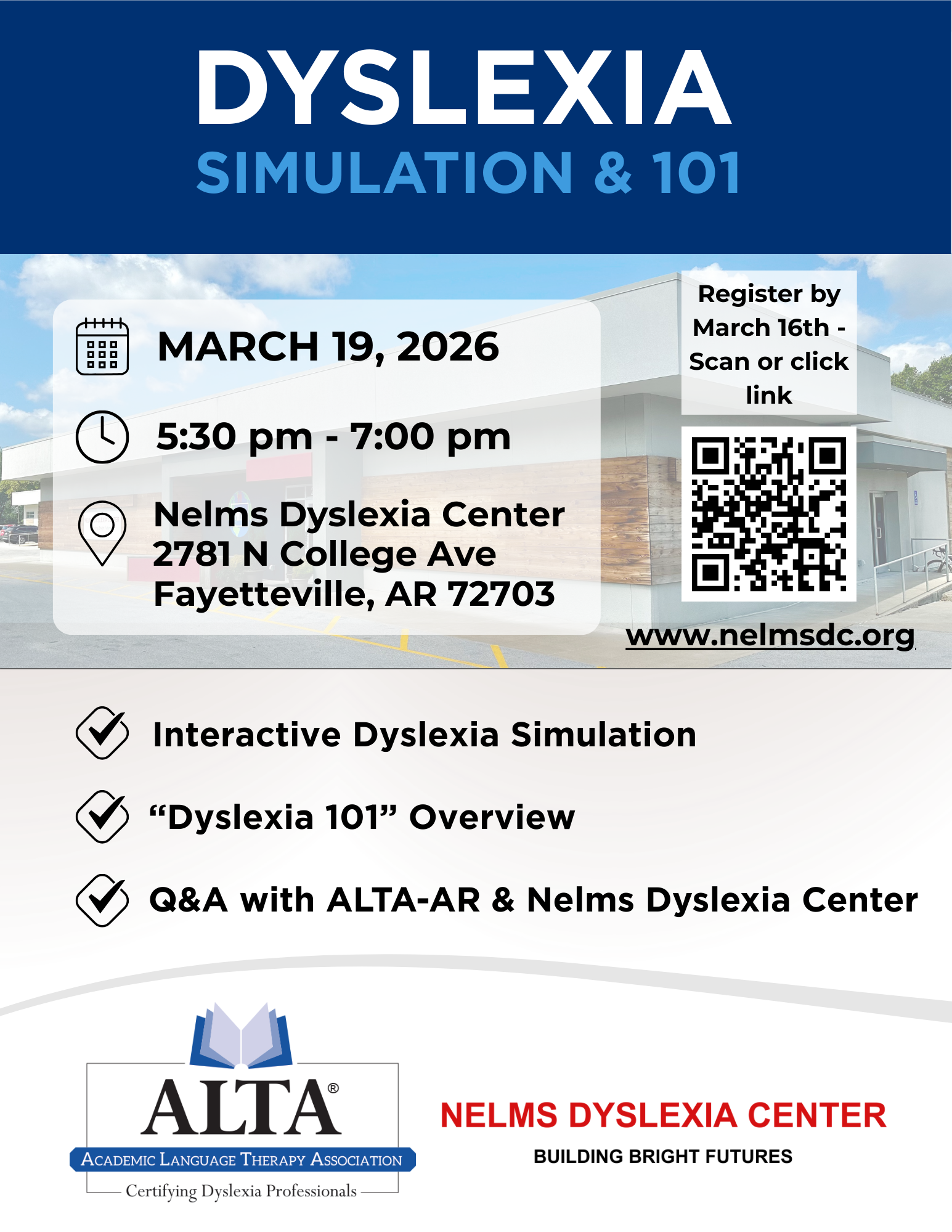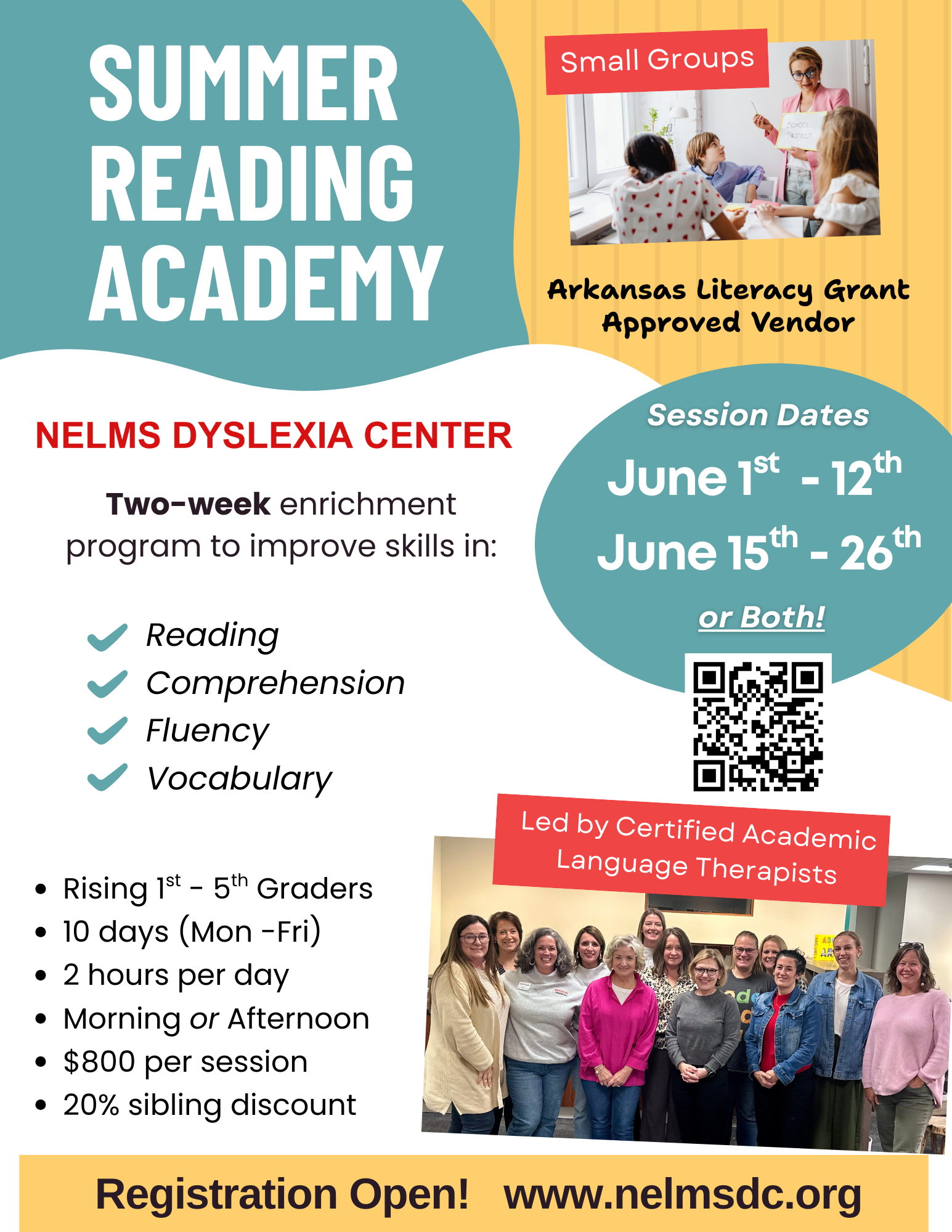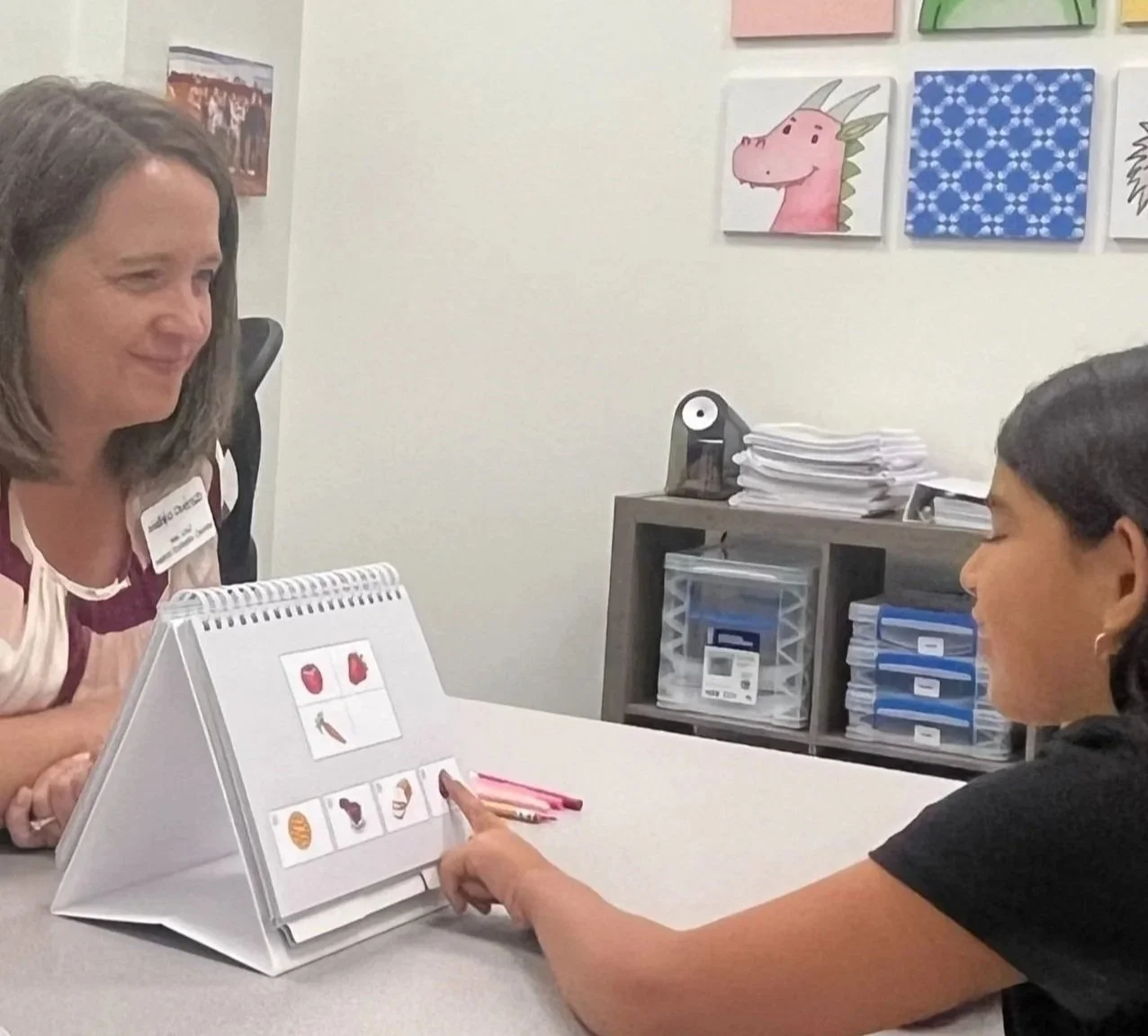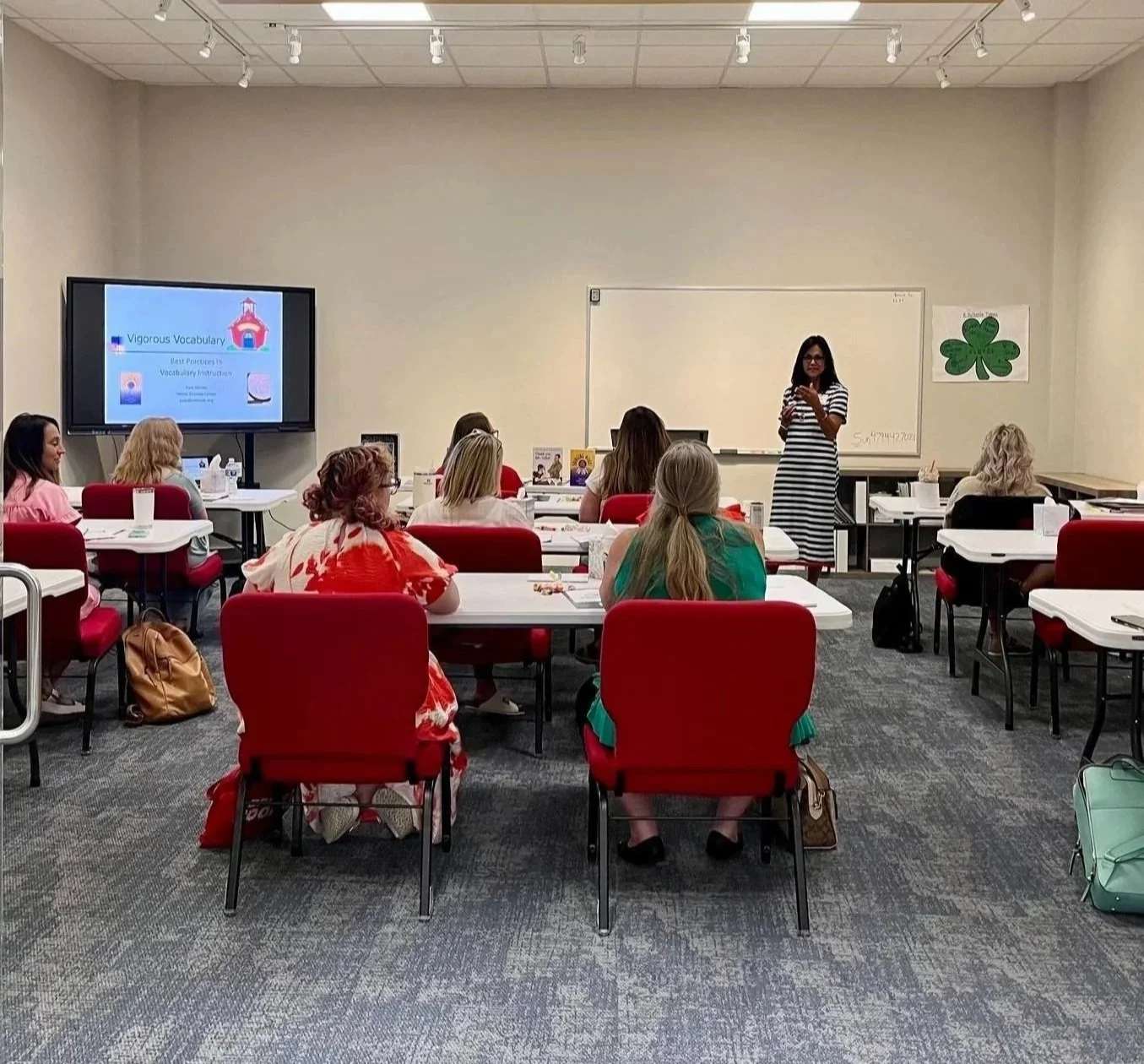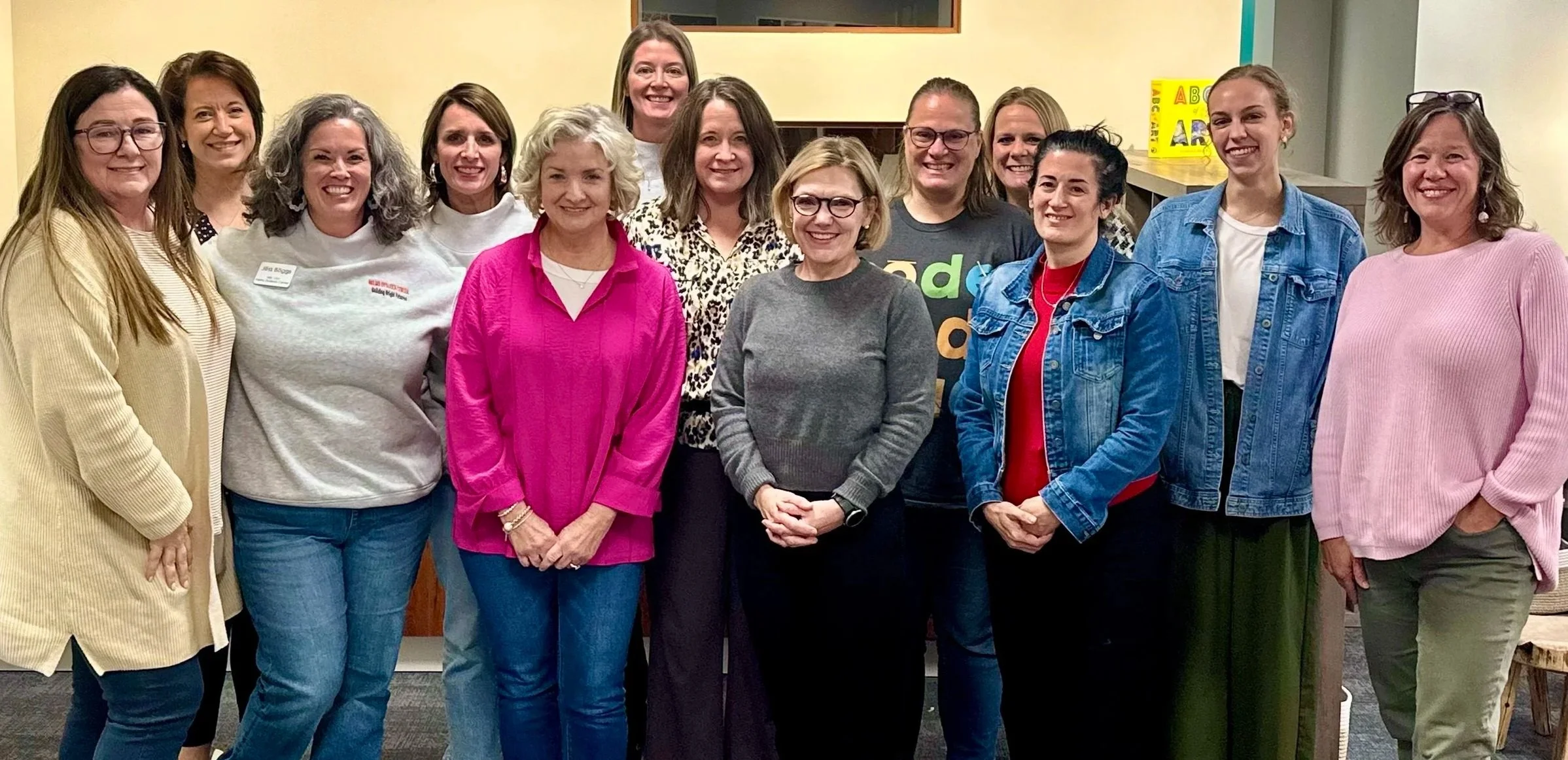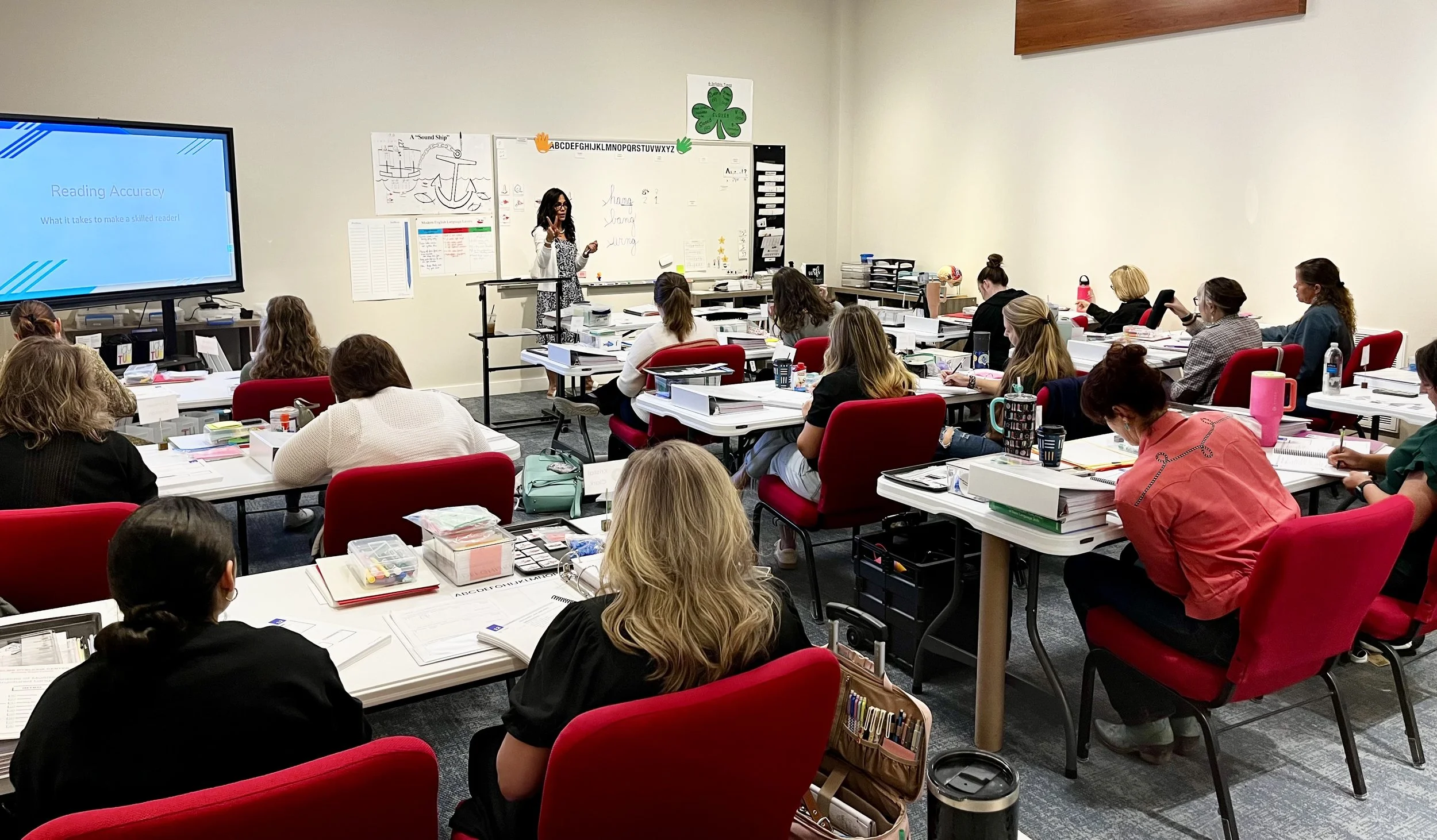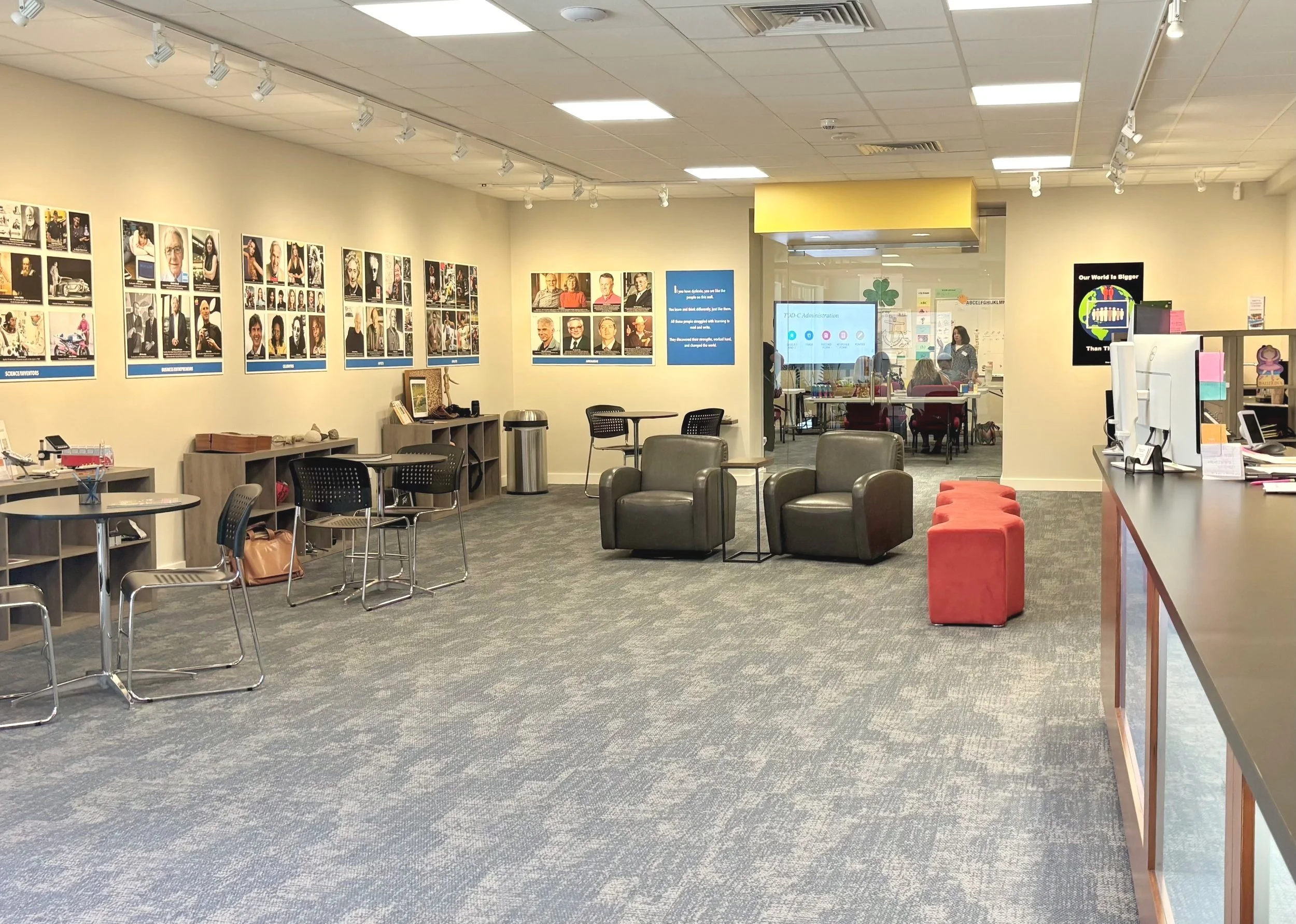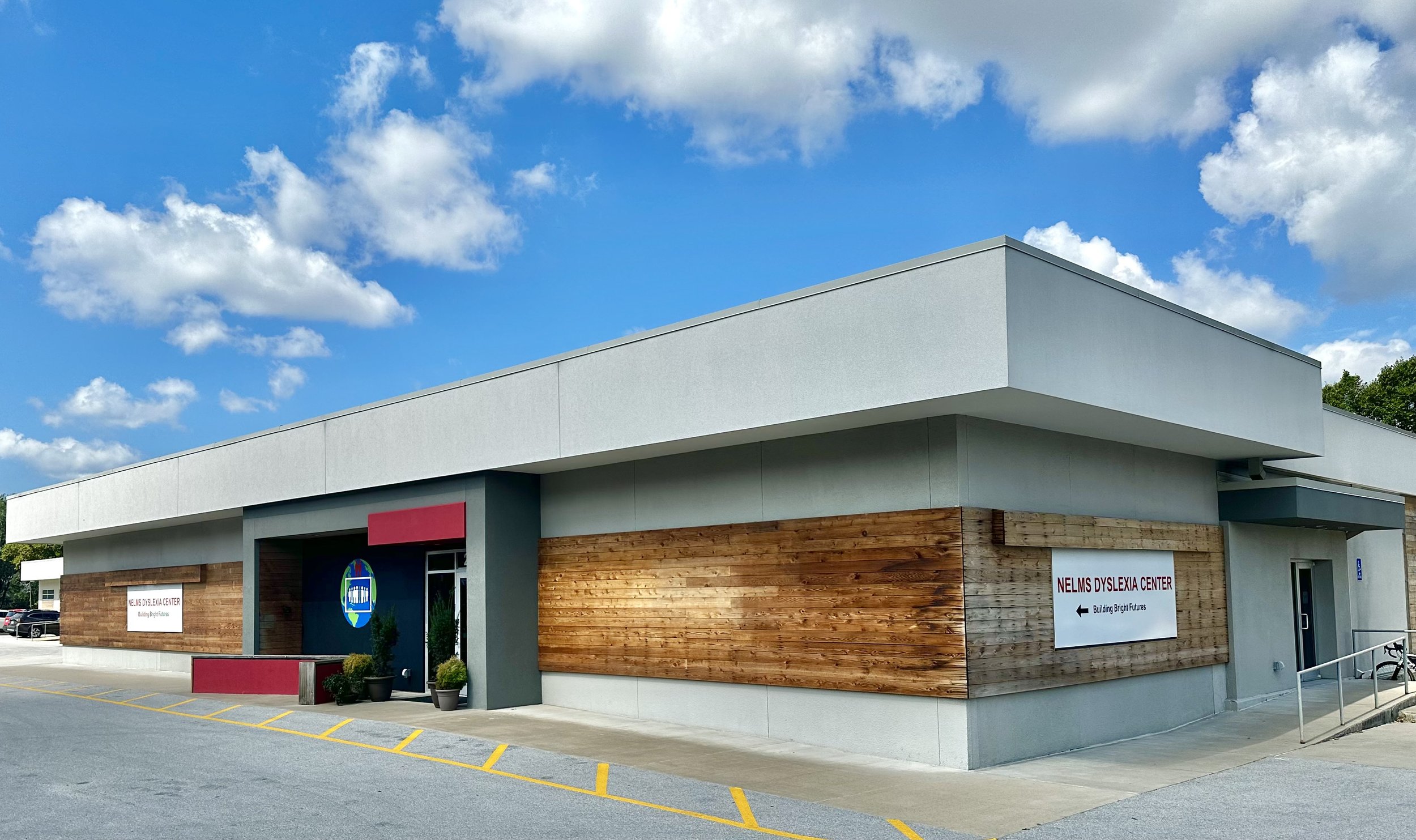
The Nelms Dyslexia Center is dedicated to empowering people in the dyslexia community to achieve their greatest potential by providing training, therapy, information and support.
Training Starts March 9th
Dyslexia is a difficulty in reading and spelling that affects approximately 20% of the population (1 in 5 students). It is neurological in origin and unrelated to intelligence. Many individuals with dyslexia have made profound and lasting contributions to society.
All of our instructional programs and resources are rooted in the science of reading and the latest research in dyslexia.
A comprehensive educational diagnostic assessment can identify whether a child’s reading challenges are the result of dyslexia or another related learning difference.
We deliver high-quality, research-based instruction grounded in the five essential components of reading, as identified by the National Reading Panel.
Achieving certification as an Academic Language Therapist is the highest level of professional training for educators, providing the most effective, evidence-based instruction for students with dyslexia.
We offer a variety of comprehensive training programs for teachers and schools, designed to enhance professional development in dyslexia awareness and effective reading instruction.
All of our staff are highly trained
Certified Academic Language Therapists & Practitioners with decades of experience and demonstrated results in helping students learn how to read.

